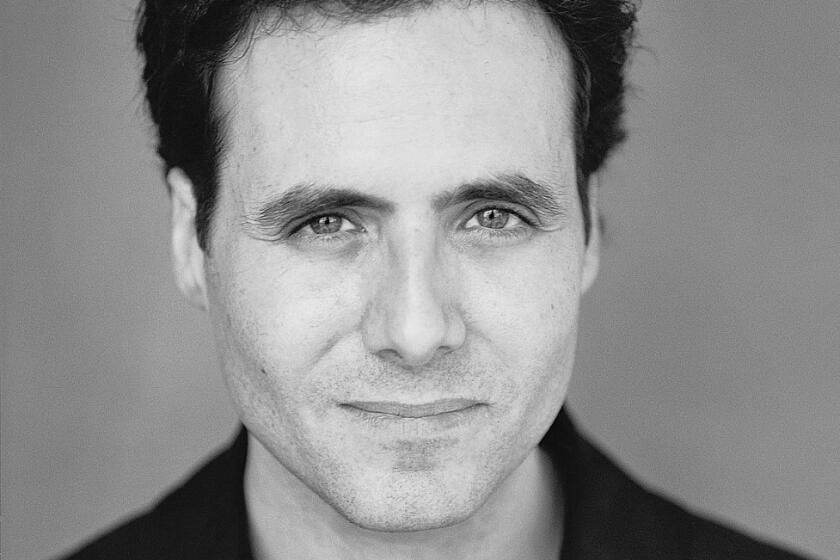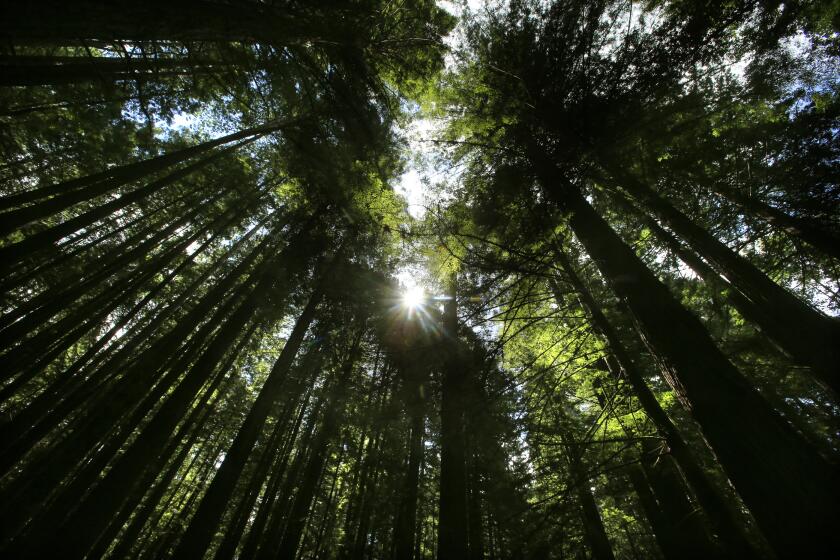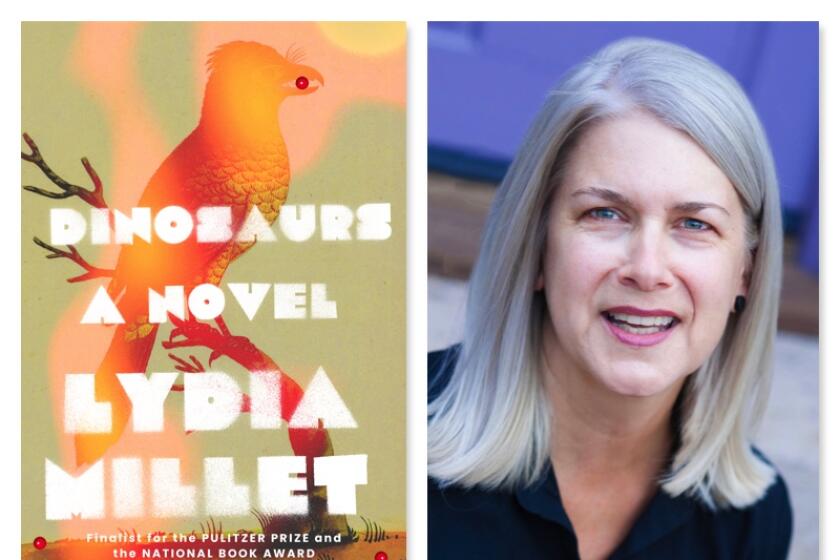- Share via
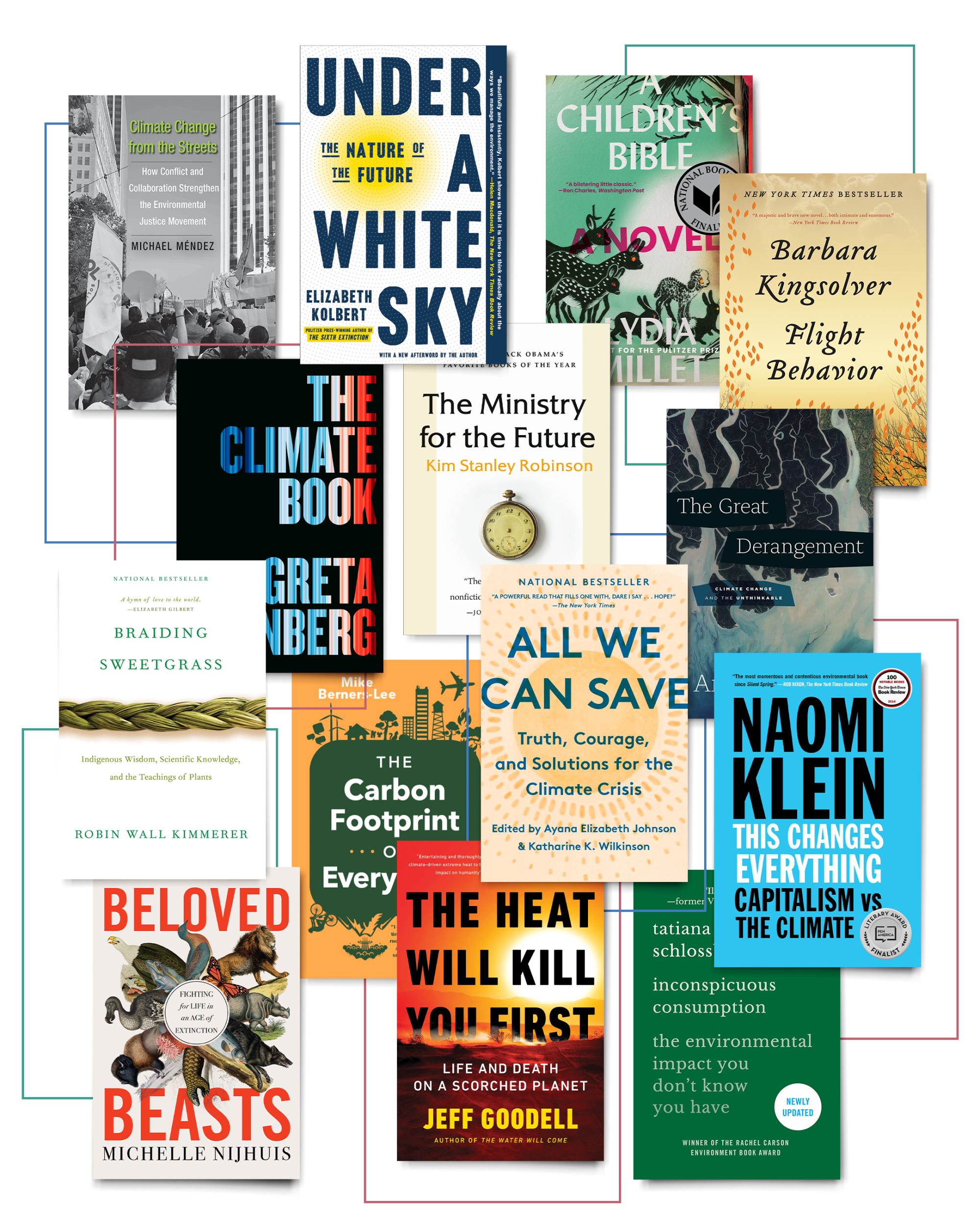
Want to read more about climate change but not sure where to start? As an environmental writer and self-proclaimed book geek, I get this question quite often from friends and family (not to mention from my own colleagues in the newsroom).
So we figured it was time for me to share a list of books I’ve found helpful, for newbies and experts alike. Some titles are older, others more recent — and each one is strikingly prescient on how climate change touches every aspect of our lives.
This list is by no means comprehensive, but consider it a snapshot of all the many ways you can connect more deeply with the issue. Perhaps it’s a practical guidebook on carbon footprints, or a sharp essay collection, or a rigorous assessment of how we relate to the natural world. I’ve also included a few novels at the end, in case fiction is more your jam.

Let’s start with nonfiction. Here are 16 books (listed in alphabetical order) that I find myself recommending, time and time again:
“All We Can Save: Truth, Courage, and Solutions for the Climate Crisis” edited by Ayana Elizabeth Johnson and Katharine K. Wilkinson (One World, 2020): Scientists, teachers, poets, journalists, activists and lawyers come together in this thought-provoking collection of essays, all written by women working at the forefront of climate action. Filled with compassion and nuance, this book offers audacious hope and much-needed inspiration.
“At Home on an Unruly Planet: Finding Refuge on a Changed Earth” by Madeline Ostrander (Henry Holt, 2022): Through on-the-ground stories and profound reflections, Ostrander weaves together vivid accounts of the fires and floods already reshaping four communities on the front lines of climate change (including in Richmond, Calif.). Lessons of resilience bring this book home, as we learn to adapt and reconsider how we want to live.
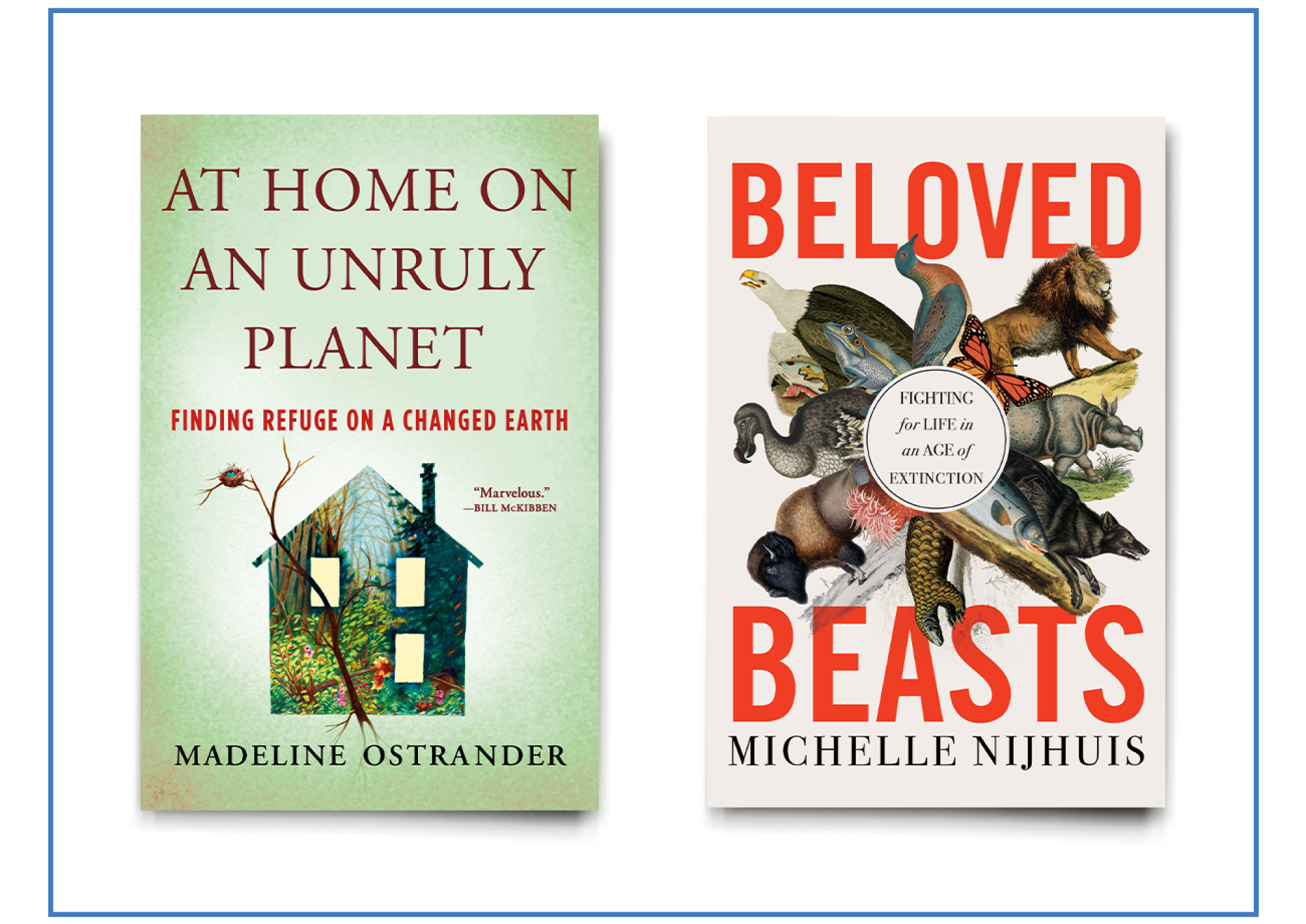
“Beloved Beasts: Fighting for Life in an Age of Extinction” by Michelle Nijhuis (W.W. Norton, 2021): This book taught me so much about how the conservation movement came to be. It’s a critical — and elegantly written — examination of the western-centric systems guiding environmentalism today. Unsparing with the racism and colonialism baked into modern species protection, Nijhuis helps us understand how to avoid repeating the mistakes of our past as we reckon with our future.
“Braiding Sweetgrass: Indigenous Wisdom, Scientific Knowledge, and the Teachings of Plants” by Robin Wall Kimmerer (Milkweed, 2013): People are a part of nature, not separate from nature, and this quiet but powerful book has shifted the way hundreds of thousands of people see the world. Kimmerer, who is a botanist, professor and an enrolled member of the Citizen Potawatomi Nation, braids Western science with Indigenous knowledge in a tender and mind-opening way. Originally published in 2013, the latest edition comes with a new introduction.
“The Carbon Footprint of Everything” by Mike Berners-Lee (Greystone Books, 2022): What is the carbon footprint of flying from Los Angeles to Barcelona? How bad is your morning latte for the environment? This handy guidebook breaks down everyday life for the climate-conscious. You’ll learn quite a few facts (eating a U.S.-reared steak has about the same carbon impact as 100 bananas) and come away with a deeper understanding of how each of us can make a difference on this planet.
In ‘The Parrot and the Igloo,’ David Lipsky — author of books on West Point and David Foster Wallace — turns his attention to climate-change denial. Let him explain
“The Climate Book: The Facts and the Solutions” by Greta Thunberg (Penguin Press, 2023): Thunberg, the young Swedish activist famously known for telling it like it is, has brought together a comprehensive and remarkably practical one-stop shop for all things climate. Wisdom from more than 100 scientists, engineers, economists, philosophers, activists, writers and community leaders fills these pages. There’s something in this book for everyone.
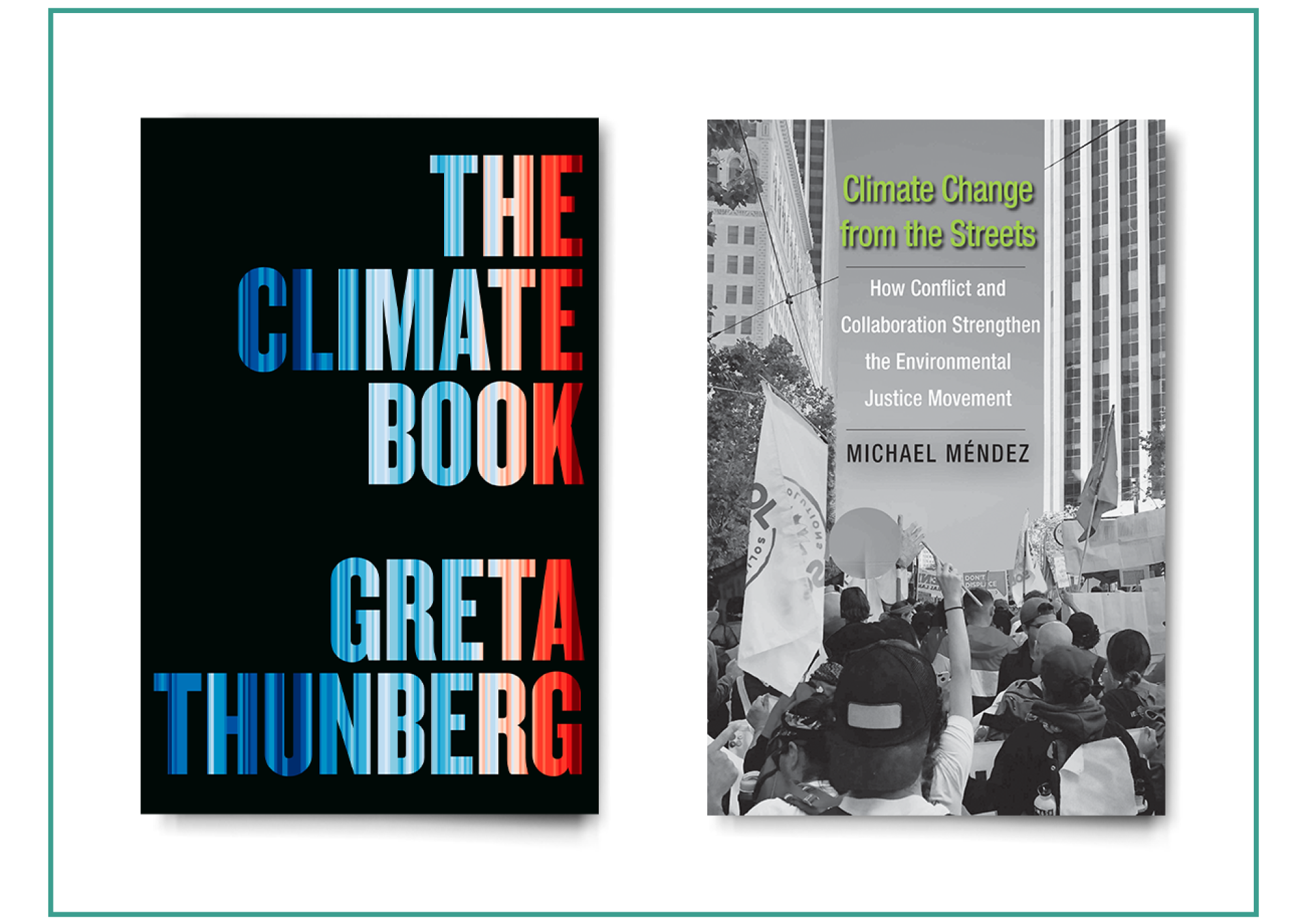
“Climate Change from the Streets: How Conflict and Collaboration Strengthen the Environmental Justice Movement” by Michael Méndez (Yale University Press, 2020): Told through deeply researched stories from oft-overlooked communities in California, this book is a powerful primer on environmental justice. Méndez urges us to see how saving the planet and improving public health are inextricably linked — and how our existing systems so often ignore the people most harmed by climate change.
“The End of Nature” by Bill McKibben (Random House, originally published in 1989): This is a classic, and yes, people have been sounding the alarm on climate change for decades. When I reread the book this summer, I was struck by just how much McKibben’s impassioned plea still holds. The survival of our planet calls for profoundly philosophical shifts in the way we relate to the natural world, and McKibben continues to offer a way forward.
“The Great Derangement: Climate Change and the Unthinkable” by Amitav Ghosh (University of Chicago Press, 2016): Don’t be deterred by this book’s academic appearance. Ghosh, an award-winning novelist, takes a fascinating look at how literature and history (as well as politics) have sidestepped or grossly simplified the scale and urgency of climate change. By doing so, we have been conditioned to doubt stories that feel too apocalyptic. The climate crisis, as Ghosh explains, is also a crisis of culture, and thus of the imagination.
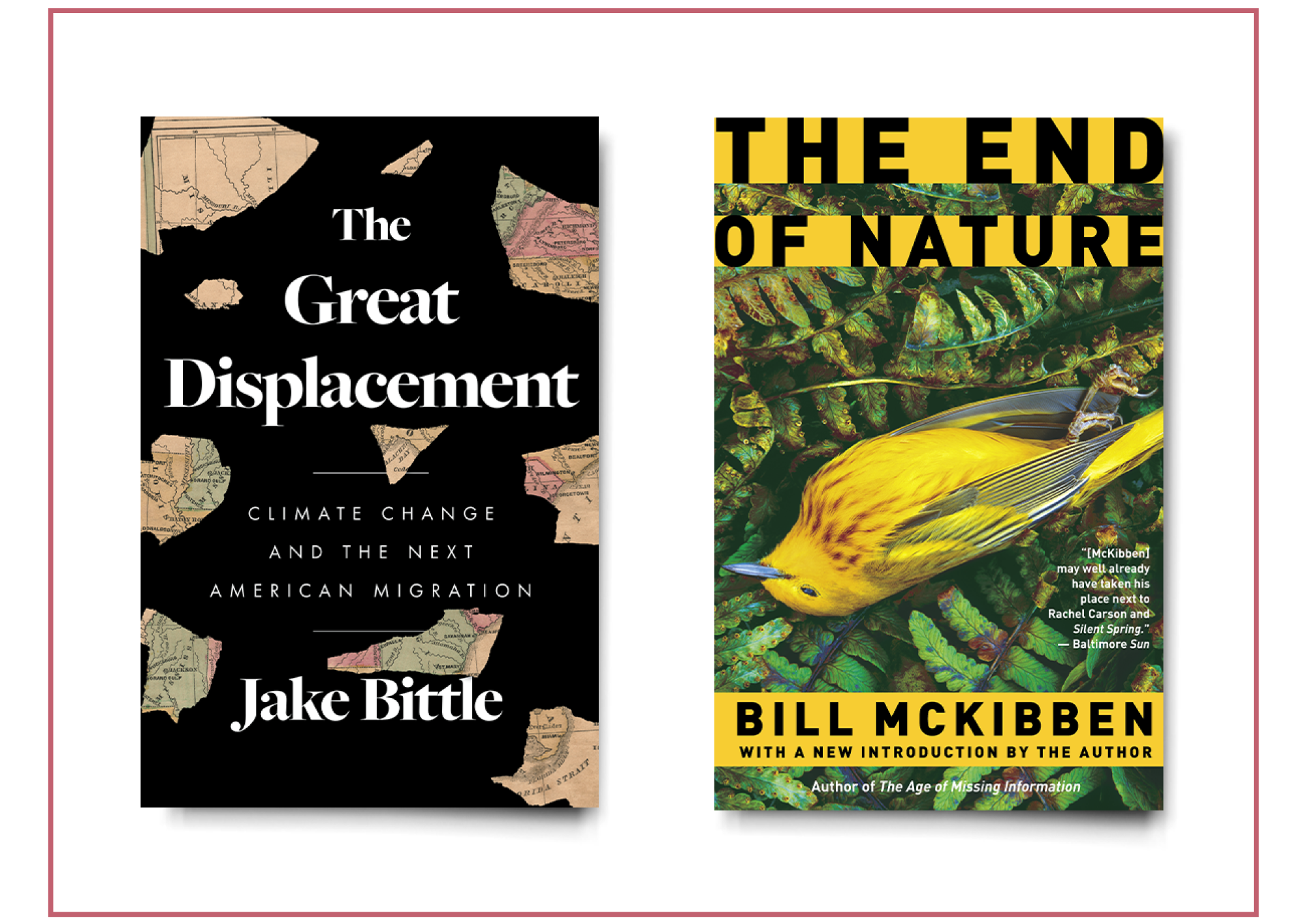
“The Great Displacement: Climate Change and the Next American Migration” by Jake Bittle (Simon & Schuster, 2023): Where do you go after your town disappears in a wildfire? What happens to a drowning community after one too many floods? Climate change has already forced numerous people to move from the places they have long called home, and Bittle thoughtfully examines what this less-told story of climate migration means for all of us.
Braided themes of grief, hope and perspective animated a lively and ultimately hopeful panel on climate fiction at the L.A. Times Festival of Books on Sunday.
“The Heat Will Kill You First: Life and Death on a Scorched Planet” by Jeff Goodell (Little, Brown, 2023): “Prescient” and “gripping” are two words that come to mind when describing Goodell’s latest book. Yes, you will feel a sense of dread as you learn about all the insidious ways extreme heat can upend our lives. But this is the reality, and Goodell guides us incisively with clear science and great storytelling.
“Inconspicuous Consumption: The Environmental Impact You Don’t Know You Have” by Tatiana Schlossberg (Balance, 2019): Balancing the call for individual actions, as well as the need for systemic change, is a tricky message to communicate. But in short, we need both. Schlossberg empowers each of us to rethink all the tangible ways we can make a difference. Above all, this book is about collective action — and the power we have as voters and consumers to drive meaningful change.
“The New Climate War: The Fight to Take Back Our Planet” by Michael E. Mann (PublicAffairs, 2021): Mann hits hard on disinformation, exposing how corporations (led by the fossil fuel industry) have delayed climate action and deflected blame. He also holds no punches on the questionable narratives and arguments that have worked their way into the climate debate. This book is blunt, but you will come out of it more equipped to navigate your own feelings on various climate solutions.
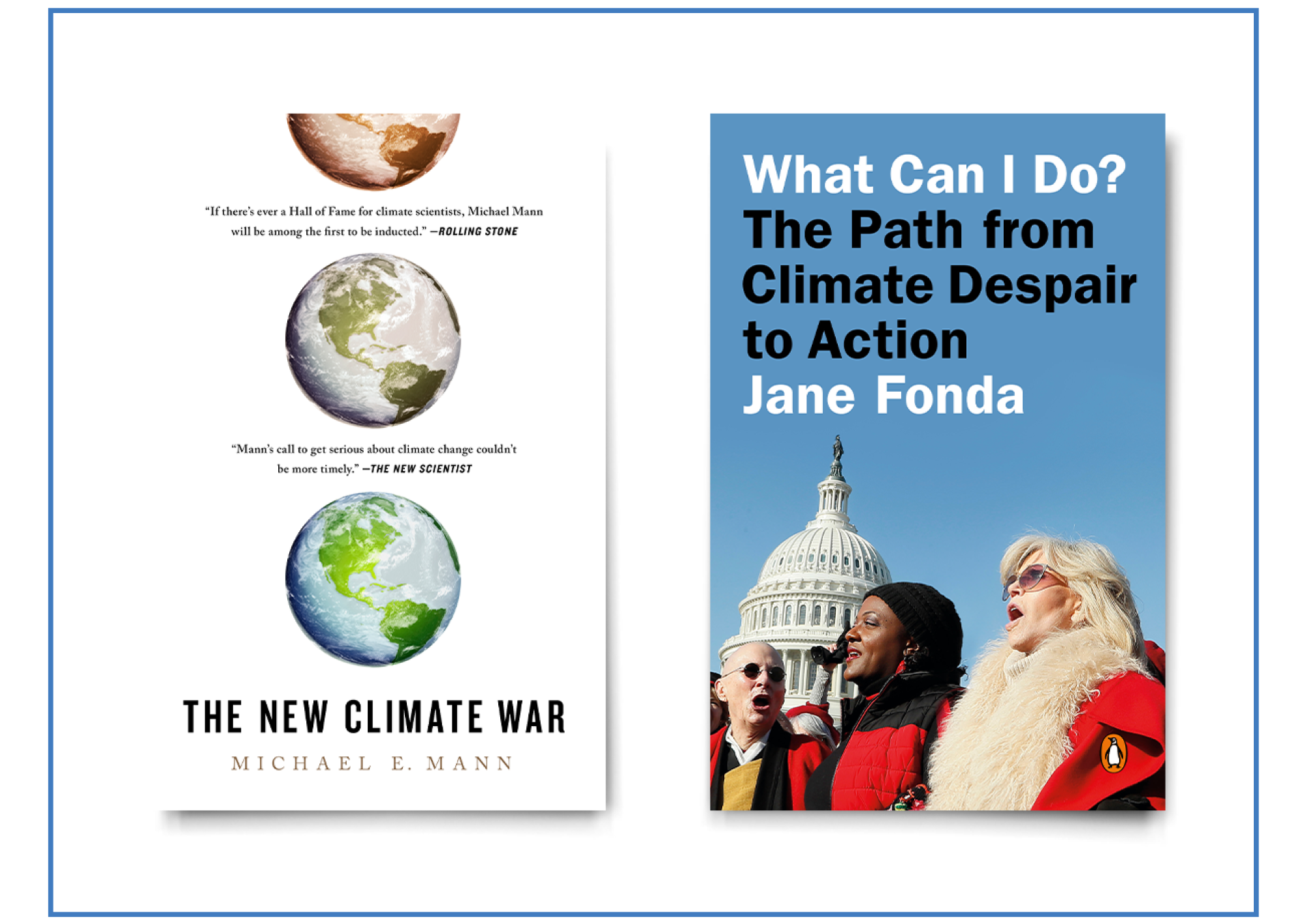
“This Changes Everything: Capitalism vs. The Climate” by Naomi Klein (Simon & Schuster, 2014): Klein makes a piercing case that capitalism and saving the planet are incompatible. Through meticulously reported examples, she explains why letting go of a “free market” economy is critical to our survival — and how responding to climate change can be a catalyst to fixing long-broken systems. Start with “This Changes Everything” if you’re new to Klein’s work, and then check out her latest book, “On Fire: The (Burning) Case for a Green New Deal.”
“Under a White Sky: The Nature of the Future” by Elizabeth Kolbert (Crown, 2021): For those of you wondering about geoengineering (such as turning carbon emissions into stone or shooting planet-cooling particles into the sky), this book, to put it in Kolbert’s words, is about “people trying to solve problems created by people trying to solve problems.” The Pulitzer Prize-winning author takes a hard look at human intervention, with sharp observations on what we stand to lose.
“What Can I Do? The Path From Climate Despair to Action” by Jane Fonda (Penguin Books, 2020): Jane Fonda needs no introduction, and her spirited, no-nonsense crash course on climate change offers a number of pragmatic ways to help save the planet. Each chapter is filled with specific resources and advice on how to take action, and, as the book declares: “What Can I Do?” is not a wish list — it’s a to-do list.

Like fiction? Try these novels:
“A Children’s Bible” by Lydia Millet (W.W. Norton, 2020): Slim but evocative, with darkly funny turns, this novel is hard to describe without giving too much away. Using a clever allegory, Millet, a prolific author and lifelong environmental writer, prompts us to reflect on the generational consequences of climate change.
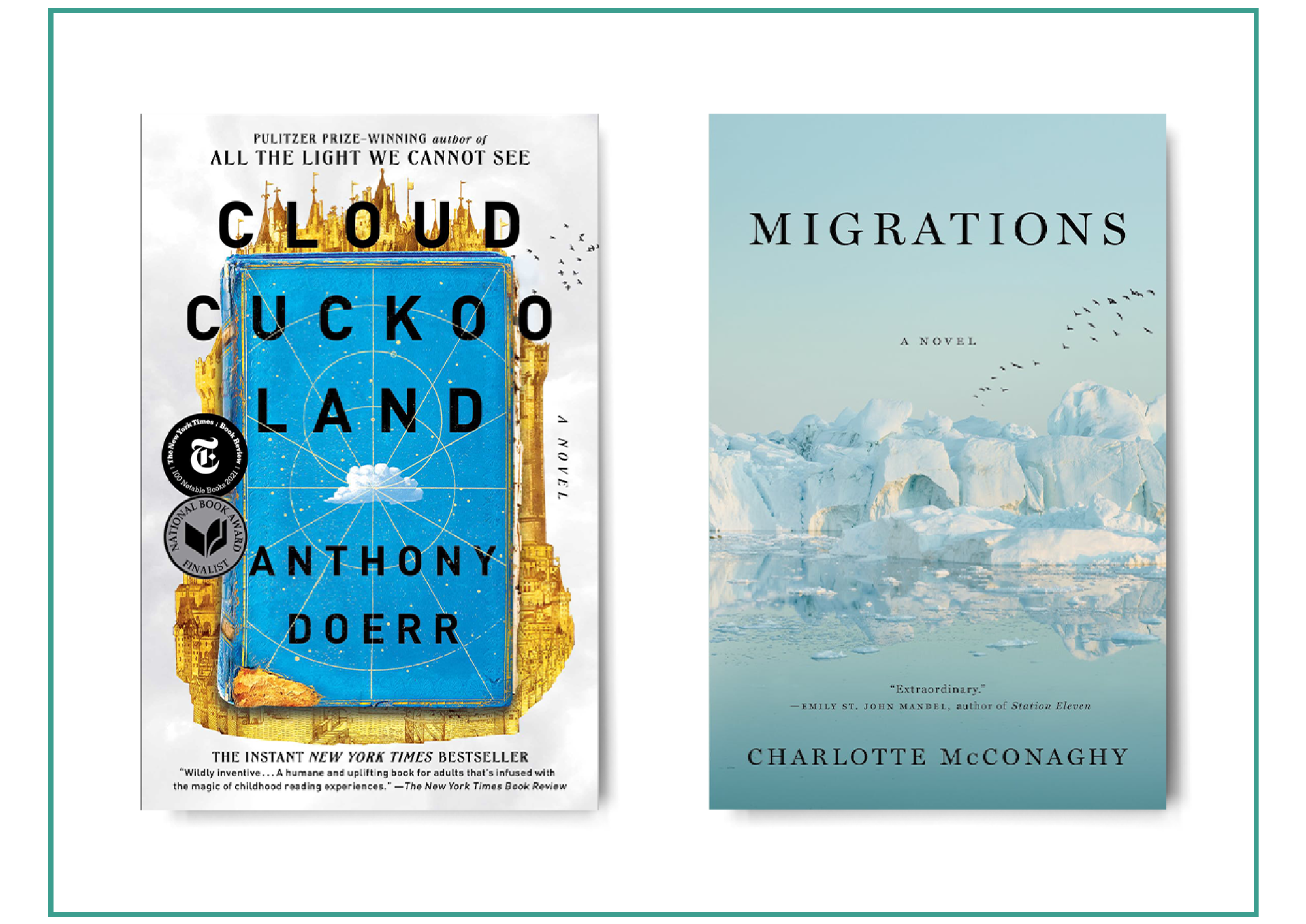
“Cloud Cuckoo Land” by Anthony Doerr (Scribner, 2021): This one’s a doozy, but trust that Doerr, author of the blockbuster novel “All the Light We Cannot See,” will take you on an epic and deeply imaginative journey. Through intersecting stories that span the past, present and future, Doerr brilliantly addresses climate change and the state of the world we are passing down to our children.
“Flight Behavior” by Barbara Kingsolver (Harper Perennial, 2012): Nuanced and closely observed, this novel peels back the layers of climate change through monarch butterflies and a spirited young woman in rural Tennessee. Kingsolver (who just won a Pulitzer Prize this year for “Demon Copperhead”) writes with profound empathy from perspectives not usually seen in climate writing. Intricate themes of faith, denial and socioeconomic struggle intersect with the underlying story of environmental devastation.
Lydia Millet, author of ‘A Children’s Bible,’ joins the L.A. Times Book Club to discuss her new novel, ‘Dinosaurs.’
“Migrations” by Charlotte McConaghy (Flatiron Books, 2020): In a near-future fraught with human disregard to nature, an ornithologist embarks on a harrowing mission to find the last Arctic terns on the planet. McConaghy writes beautifully — and with heart-wrenching clarity — about the landscapes and wildlife that we’re losing. But not all hope is lost in this gripping story about a world on the brink of collapse.
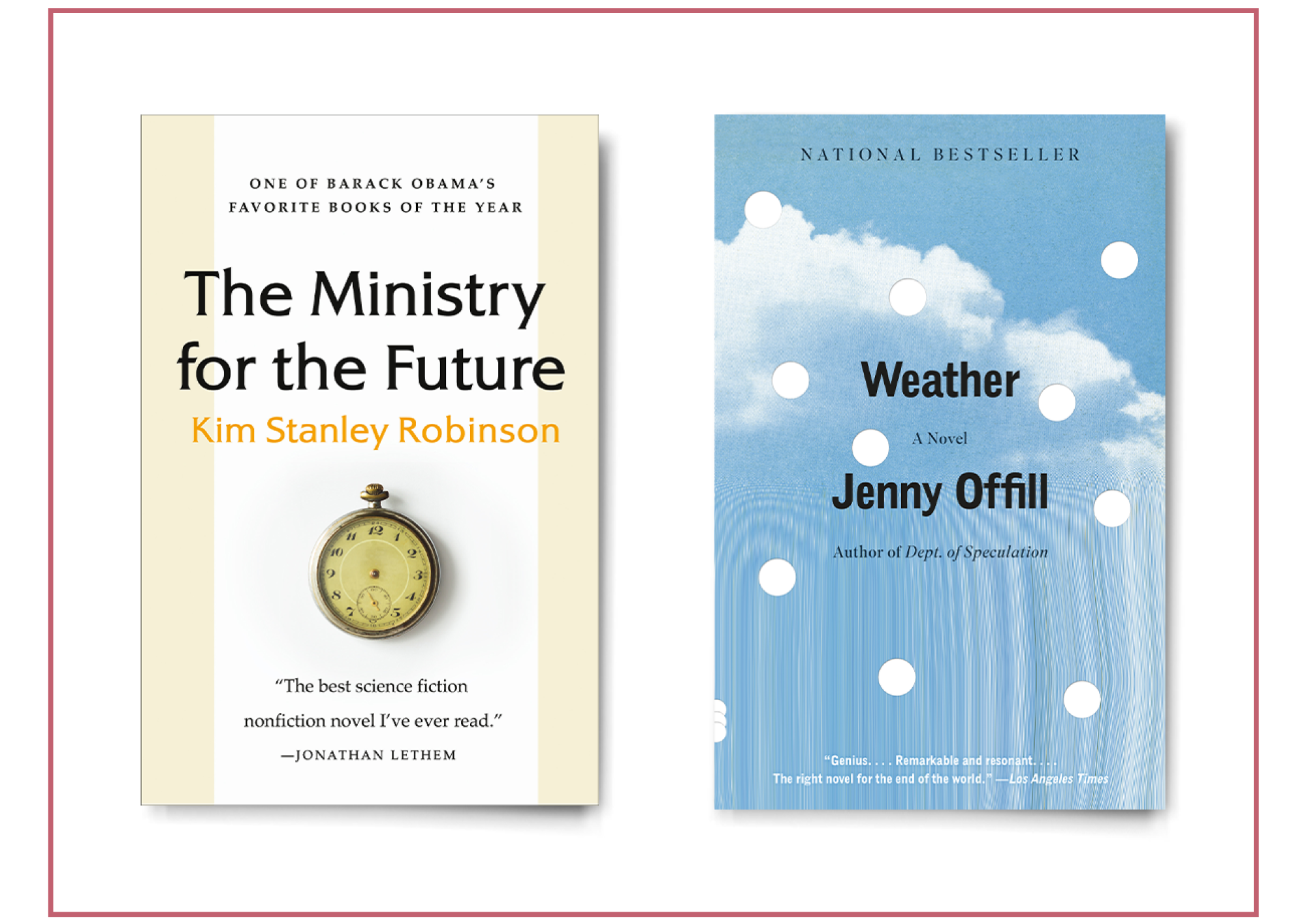
“The Ministry for the Future” by Kim Stanley Robinson (Orbit, 2020): Set in the very near-future (think, 2025), this page-turner urges us to think about the climate crisis through the Ministry for the Future, a newly created agency whose mission is to advocate for the world’s future citizens. Robinson deftly integrates wonky details and environmental policy debates, so you’ll learn a lot in the process of reading such an enthralling and mind-expanding work of science fiction.
“Weather” by Jenny Offill (Knopf, 2020): Another slim but mighty book that is well worth your time. Lizzie, a college librarian with a side hustle of answering doomsday emails, embodies both the anxieties of daily life as well as the mounting dread we feel when thinking about climate change. Brisk and urgent, punctuated with laugh-out-loud moments, this novel hits you with an immense range of emotion.
Ask a Reporter: Inside the project
What: Times reporters Rosanna Xia and Sammy Roth will discuss “Our Climate Change Challenge” during a live streaming conversation. City Editor Maria L. LaGanga moderates.
When: Sept. 19 at 6 p.m. Pacific.
Where: This free event will be live streaming. Sign up on Eventbrite for watch links and to share your questions and comments.
If the Golden State is going to lead the world toward a better, safer future, our political and business leaders — and the rest of us — will have to work harder to rewrite the California narrative. Here’s how we can push the state forward.
